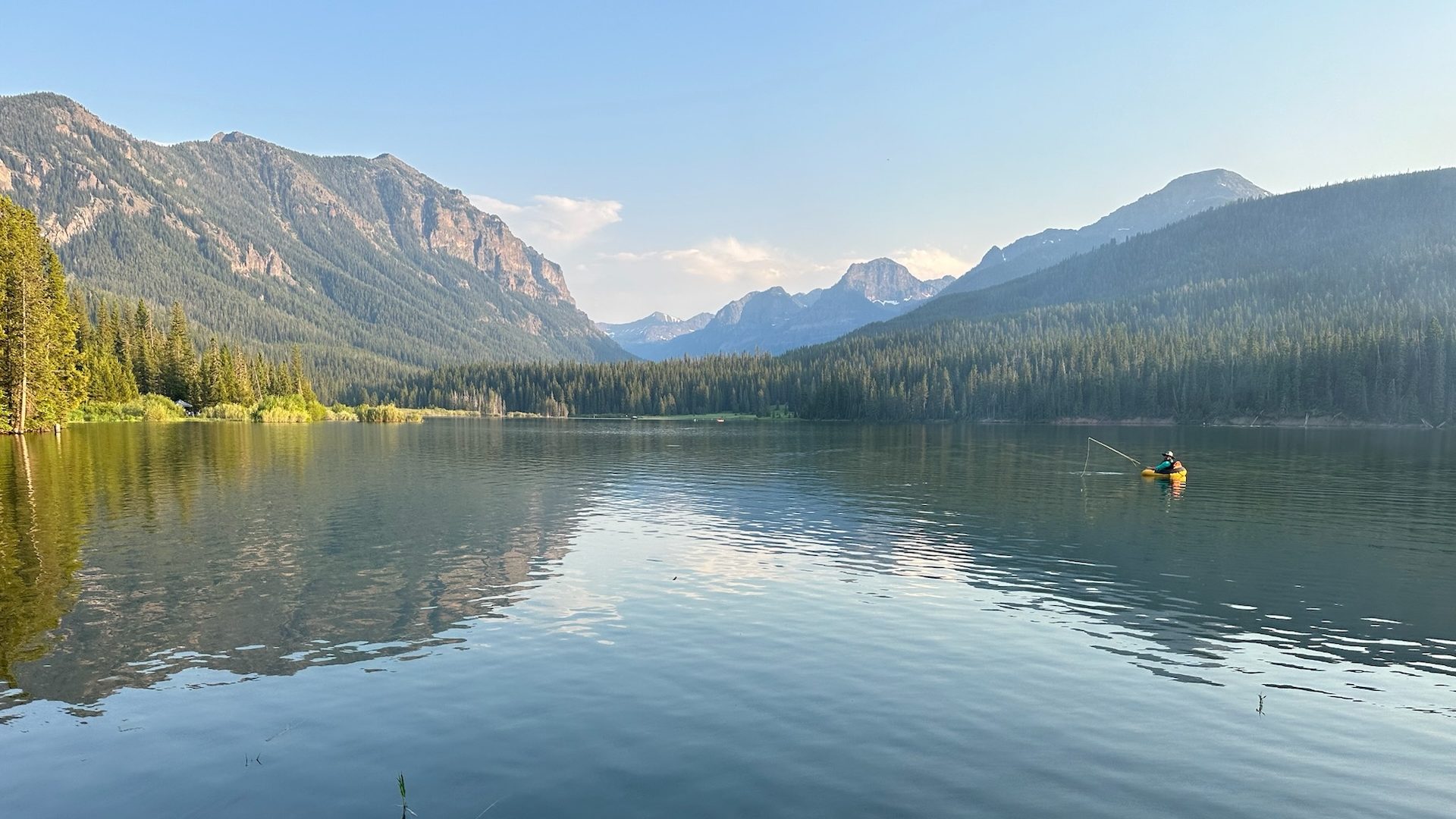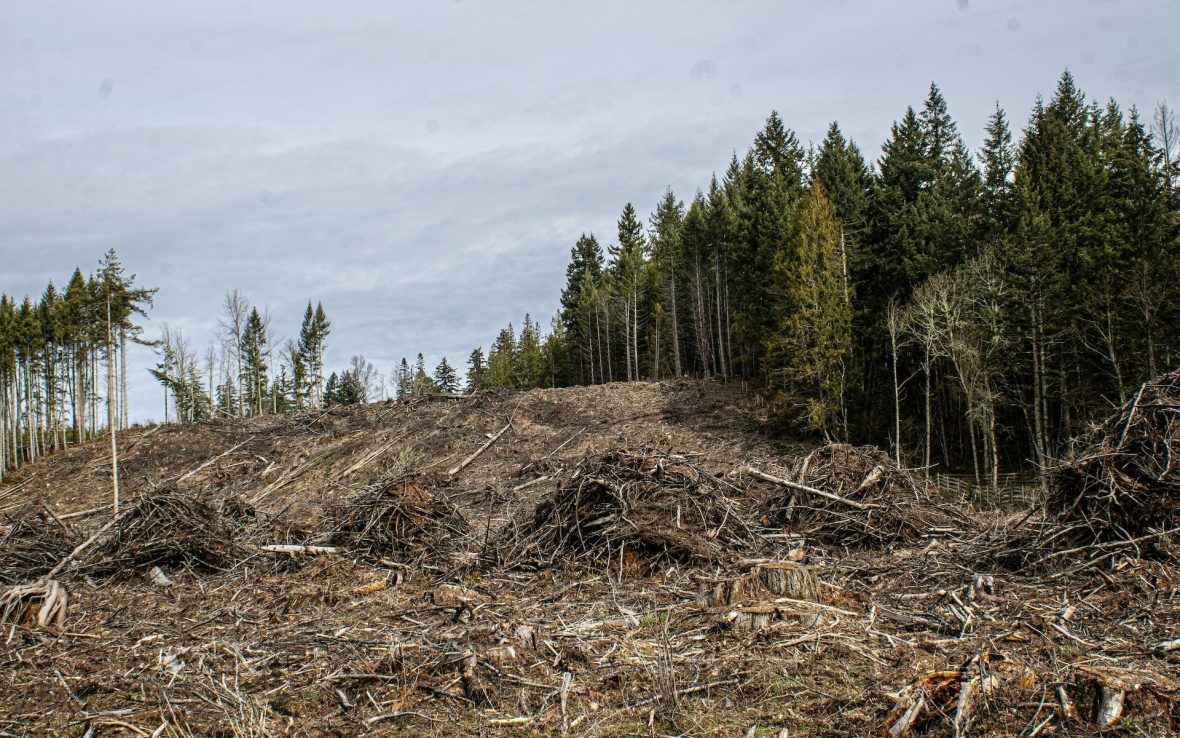
Congress may not have sold off our public lands—this time—but they still did some damage. Here are five pieces of bad news included in the new law.


Congress may not have sold off our public lands—this time—but they still did some damage. Here are five pieces of bad news included in the new law.
On the Fourth of July, celebrations at the White House included President Trump signing a massive budget reconciliation bill into law.
The previous day, Congress had passed the final version of the legislation, which affects basically every part of the government’s financial operations. Analysts expect that, when enacted, the so-called ‘Big Beautiful Bill’ will negatively affect access and affordability of people’s healthcare, federal taxes, clean energy, nutrition assistance programs, and the management of our public lands.
One high-profile threat to public lands—the selloff of millions of acres across the West—was, thankfully, absent from the so-called ‘Big Beautiful Bill’s’ final text. Public outcry and Senate rules forced Utah’s Republican senator Mike Lee to withdraw the proposed sales several days before the Senate voted on the legislation.
As great as it is that the public will retain ownership of our land, the new legislation includes plenty of threats to the long-term health of wild places in the US.

The first bit of bad news that may have flown under your radar: The budget bill cancels USD$267 million from the National Park Service budget that was earmarked to address staffing shortages in the park. The cut comes on the heels of a roughly 25 percent reduction in staff since the beginning of the Trump administration, according to an analysis by the nonprofit National Park Conservation Association.
“Congress is failing to do its job yet again,” Daniel Hart, Director of Clean Energy and Climate Policy for the National Parks Conservation Association, said in a statement. “At a time when our national parks are facing record visitation and historic staffing shortages, lawmakers are making a choice to cut funding. Their continued failure to champion national parks puts irreplaceable landscapes, historic treasures and visitor safety at risk.”
In a highly polarized political environment, public lands have been one of very few issues that still receives widespread, bipartisan support.
The budget bill also eliminates USD$12 million intended for climate resiliency projects at the parks and on Bureau of Land Management land. Climate change-intensified floods, forest fires, droughts, and other extreme weather events are already a regular threat to many parks’ infrastructure and natural wonders, and the cut funds could have helped take the edge off. Similarly, the National Oceanic and Atmospheric Association lost funding for projects to prepare US coastlines for more climate change-intensified storms.
The fourth main agency responsible for stewarding large tracts of public land, the Forest Service, wasn’t spared budget cuts either. They lost funding for conservation grants and protections for old-growth forests, and the new bill also mandates the Forest Service increase timber harvests in coming years.

And it’s not just timber—as much as we might like to think of public land in the US as pristine wilderness, much of it has always been managed for resource extraction rather than recreation and conservation. That includes ranching, mining for coal and precious metals, and drilling for oil and gas on acres overseen by the Department of Interior.
This bill mandates more permits be issued and approved for coal and oil projects, at the same time lowering the fees paid by drilling and mining companies. Basically, more land will be opened up to environment-polluting mines and wells in order to gather fossil fuels, while the fee reductions shrink the budget that agencies use to steward the rest of the land.
The new bill doesn’t stop at incentivizing dirty fuels like coal and oil; it also strips tax measures designed to promote clean energy. These include tax credits for electric vehicles and home EV-charging stations, and eliminating tax incentives for wind and solar energy generation. Experts say that these changes will have huge ramifications for the entire energy economy, raising overall costs for consumers, causing the loss of thousands of jobs in the clean energy industry, and undoing years of progress towards making the electrical grid more climate-friendly. Our national parks are already acutely feeling the effects of climate change, and reversing course on clean energy isn’t going to help vulnerable ecosystems.
“The new law will force millions of acres of public lands into unneeded service for oil and gas exploration, and coal mining—forever placing them off-limits to the public,” Manish Bapna, president and CEO of the Natural Resources Defense Council, said in a statement.
In a highly polarized political environment, public lands have been one of very few issues that still receives widespread, bipartisan support. That popularity has been enough to make Republican lawmakers back down from plans to sell off our public lands more than once.
But a lot of less-than-optimal changes were still included in this new budget—which means that going forward, it’ll be the responsibility of everyone worried about the long-term health of public lands to speak up and make sure their representatives know that our public lands should stay public, accessible, and healthy.
If you have leads, ideas, tips for our US National Parks and Public Lands bureau, please send a confidential email to hello@adventure.com
***
Adventure.com’s reporting on US National Parks and public lands is made possible by the financial support of Intrepid Travel, as part of its United by Nature campaign. The support from Intrepid enables Adventure.com to invest in high-quality journalism and storytelling at a critical time for our wild places. Intrepid is not involved in any decisions made by Adventure.com’s editorial team.

Miyo McGinn is Adventure.com's US National Parks Correspondent and a freelance writer, fact-checker, and editor with bylines in Outside, Grist, and High Country News. When she's not on the road in her campervan, you can find her skiing, hiking, and swimming in the mountains and ocean near her home in Seattle, Washington.








Can't find what you're looking for? Try using these tags: